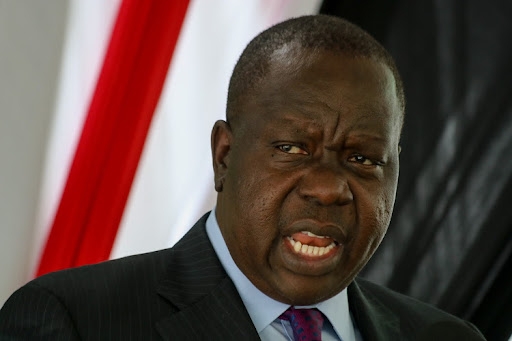

A diagnosis of a chronic illness spells one of two outcomes for the average Kenyan: death or financial devastation. In a country where the average income per capita is about Sh271 per day (about $2), standing up to the weight of hospital bills is nearly impossible.
For most people, healthcare is not just inaccessible, it’s unaffordable. Illness, after all, is unpredictable. And in many households, ignorance truly is bliss, until the knock comes on your door. When it does, the reality is devastating.
The average Kenyan in a rural area will almost always begin their health journey at the local dispensary, the first and most accessible point of care. These facilities, though critical to community health, are typically underfunded, understaffed and ill-equipped. Most do not have the capacity to conduct diagnostic tests or screen for chronic conditions. Instead, they often treat symptoms (headaches, fatigue, swelling and so on) with painkillers or antibiotics, missing the root cause entirely.
If the patient’s condition worsens, they are referred to the county referral hospital. Here, the situation becomes even more daunting. Specialised care is scarce, and access to a specialist can mean waiting in line for days, sometimes weeks. By the time a proper diagnosis is finally made — often after multiple misdiagnoses — the disease may have progressed to an advanced stage, requiring immediate and complex treatment.
At this point, the patient is usually referred to a national facility like Kenyatta National Hospital or the Kenyatta University Teaching, Referral and Research Hospital. That’s where a new battle begins, one not of medicine but of money.
Organising transport to Nairobi is an emotional and logistical nightmare for families. A round-trip from places like Meru, Turkana or even Bungoma can cost between Sh1,000 and Sh4,000, and that’s before accommodation is factored in. For a family earning less than Sh300 a day, it’s a luxury they simply cannot afford. And once they reach the city, finding a place to stay becomes another impossible task. Many end up sleeping on hospital benches, floors or verandas.
At KNH, the story is no different. Patients line up at dawn and wait for hours, sometimes even days, just to see a doctor. It’s not uncommon to hear of patients collapsing in queues or dying while waiting for attention. And these are not urban legends. These are lived realities. Families spend nights on cold metal benches, holding on to hope, while patients sleep hungry, in pain, waiting for a bed to open up or for their name to be called.
It feels like a story someone made up, a tale of hardship too harsh to be real. But this is the reality for thousands of Kenyans every single day. Chronic illness in Kenya is not just a medical diagnosis, it is a marathon of misdiagnosis, poverty, logistical nightmares and state abandonment. It's a system that fails people at every stage, robbing them not only of health and hope but of dignity, until they are either cured by chance or buried by it.
And still, in the face of all this, Kenyans cling to hope.
Hope that the next hospital visit will not end in a referral to Nairobi. Hope that a relative will organise fare or a church group will chip in for dialysis. Hope that their name will be called on a waiting list that never moves. Hope that a politician will finally do what they promised.
But hope, in this country, feels like a cruel joke. The truth is, we are not just neglected, we are hated. And I say that deliberately. Our politicians hate us, the government hates us.
How do you begin to explain the wicked audacity it takes to let a Sh3.34 billion health project rot for nearly a decade? How do you justify bleeding Sh119 million in penalties for something that has never helped a single Kenyan? Not one life saved. Not one hospital bed added. Not one diagnosis made. Just dust, cement and debt.
We’re being punished for services we’ve never received, while children die of diseases that cost less than a loaf of bread to treat. While mothers cradle their babies on cold hospital floors. While fathers auction off the only piece of land they own for medicine that might not even work
And then these same people fly abroad for routine check-ups. Not because they must but because they can. Because they’ve broken the very system meant to heal us. Because Kenyan hospitals are warzones they would never dare to step into.
They fly out because they’ve set fire to the house and refuse to live in the ashes. Because they’ve turned our hospitals into death traps for the poor, while building escape routes for themselves.
You cannot convince anyone that this is anything but hate. Systemic, sustained, intentional hatred.
As a nation, we are in the gutter. A country where illness is a private battle until it becomes a public funeral. And by then, we speak in whispers. We blame fate. We say, “God gives and takes.”
But what took them wasn’t fate; it was failure. It was policy. It was theft. It was hate.
Worse, they raise our taxes as a trade for a better medical insurance scheme, then they take NHIF, rename it to SHIF and somehow offer even worse services. As if renaming it, slapping on a fresh coat of paint, will erase the rot.
And while they rebrand failure, people cling to hope like it’s oxygen. And even that runs out in Kenyan hospitals, yet it springs eternal.
So when you hear about the East Africa Kidney Institute and the money lost, don’t just shake your head and turn the page. Know that every day that building stands unfinished, someone else falls. Someone else waits. Someone else dies.
And behind those statistics are real people. Not just “patients” but people. People who have loved and been loved in return. Mothers, fathers, children, siblings. People who matter. People who mean everything to someone.
When we vote, let’s remember: it’s contempt and it’s hate. They look at us with disdain and think we are children of a lesser god.
This is not politics; this is reality. Tune in.









